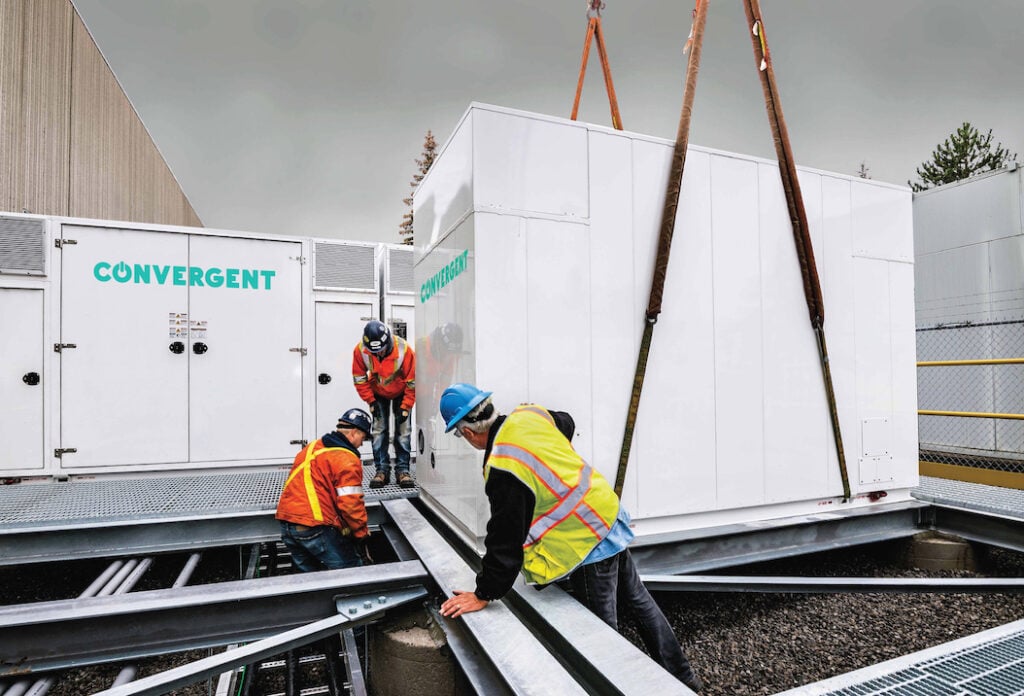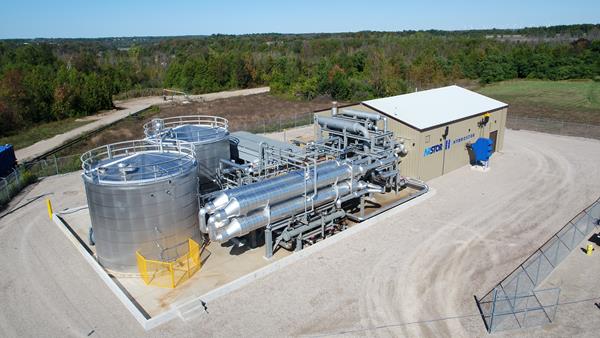
Ontario, Canada, has seen the rapid development of battery storage as a means for the province’s industries to reduce electricity costs as well as emissions. However, at macro level, the role of batteries and other storage in the decarbonisation and modernisation of the grid has not been as widely embraced in policy or regulation. Energy storage has to be at the heart of whatever path the government decides to take next, argues Justin Wahid Rangooni, executive director of trade group Energy Storage Canada.
The future of natural gas generation in Ontario has become a focus of discussion lately, particularly for municipal governments as they consider efforts to tackle climate change. Recently, several Ontario municipalities have called for a phase-out of natural gas generation by as early as 2030.
Enjoy 12 months of exclusive analysis
- Regular insight and analysis of the industry’s biggest developments
- In-depth interviews with the industry’s leading figures
- Annual digital subscription to the PV Tech Power journal
- Discounts on Solar Media’s portfolio of events, in-person and virtual
In response, Ontario’s Independent Electricity System Operator (IESO) has correctly defended the role that natural gas generation plays in the system now and has committed to undertaking a comprehensive study of the potential challenges, costs and reliability issues that would need to be addressed in any potential phase-out of natural gas.
As an industry association representing the broad supply chain of over 80 energy storage players across the country (with membership growing), Energy Storage Canada (ESC) is keen to participate in IESO’s work to demonstrate that energy storage technologies are prepared, today and into the future, to assist as part of an integrated response, with Ontario’s energy system needs, while combatting the challenges of climate change.
Energy storage is a vital tool in reducing inefficiencies and making the best use of what we have in order to save money and help meet our net-zero emission targets.
Energy storage offers one piece of the puzzle – a way for Ontario to keep power here for us to use rather than having to ship it to competitive Great Lakes states at discount prices to then be used against Ontario as an economic development and job creation tool – jobs that could be here in Ontario.

Energy storage aids reliability, decarbonisation, electricity costs benefits and more
Energy storage projects also offer other major benefits. For example, energy storage solutions could be deployed to optimise Ontario’s existing and future electricity grid, by storing electricity and then redeploying that electricity back to the system during periods of peak demand, creating both ratepayer and climate benefits in the process. Further, larger projects can also provide capacity, which the system operator has signalled will be an emerging and enduring need this decade.
In order to meet our future energy needs reliably, and affordably, energy storage resources can play a critical role in addressing reliability concerns with low start-up costs and lead time as part of an integrated solution as Ontario transitions to a low-carbon future, but steps need to be taken now to fully unlock the potential of energy storage in the province.
Now is not the time to look backwards. We must embrace what we have and make it better. The future for energy storage is now, and our membership is charged and ready. We look forward to supporting governments and system operators in Ontario and across Canada as they invest in their systems to make them more robust, better optimised, cleaner, and more affordable.
Storage is charging up to the challenge.
Justin Wahid Rangooni is executive director of Energy Storage Canada. The group hosts its annual conference virtually this year, online on 29-30 September.

